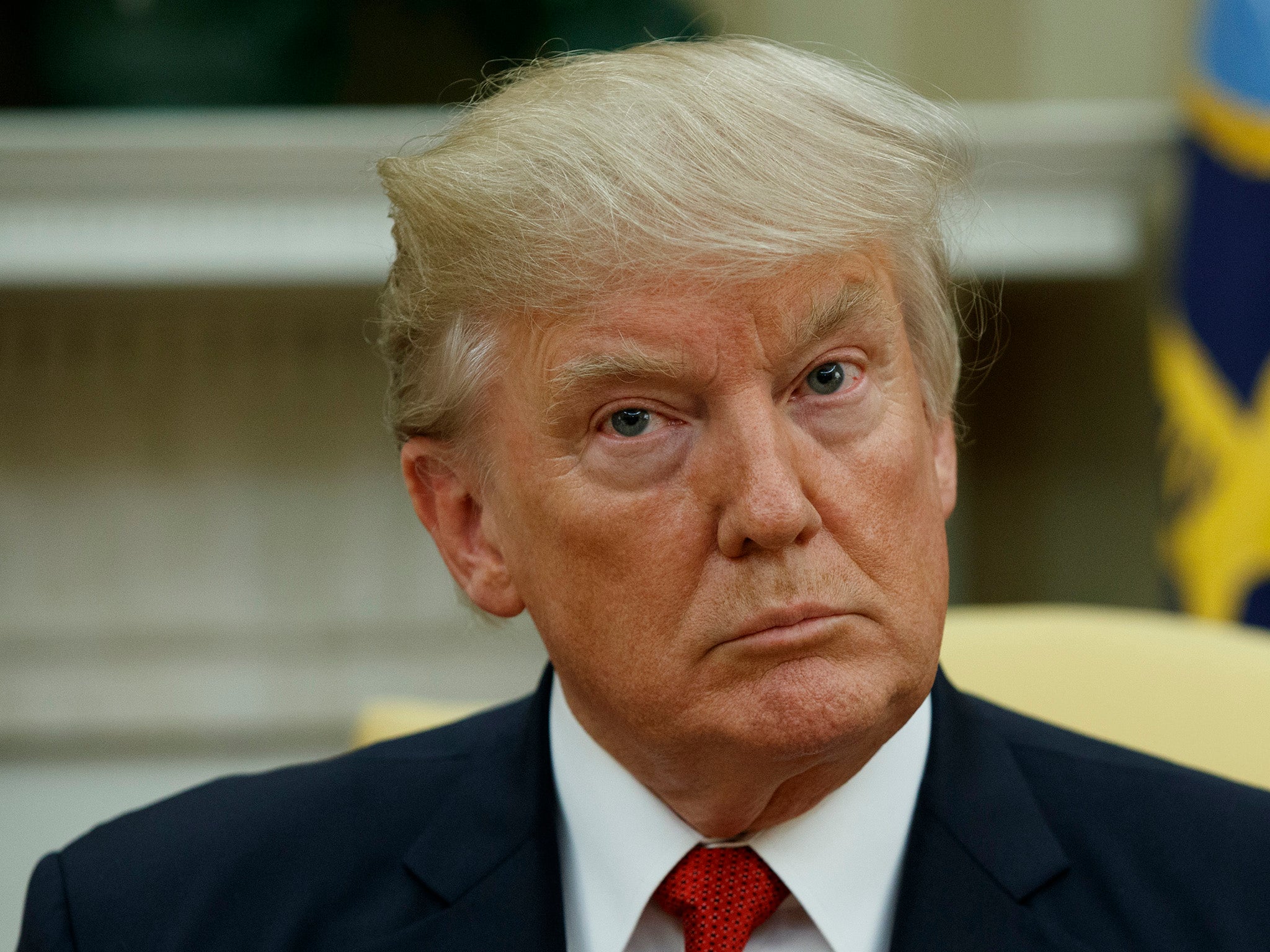We will soon witness the human costs of Trump’s deregulation crusade
It hardly needs to be pointed out in the wake of the Grenfell Tower disaster where such irresponsible iconoclasm on safety regulations risks ending up


Your support helps us to tell the story
From reproductive rights to climate change to Big Tech, The Independent is on the ground when the story is developing. Whether it's investigating the financials of Elon Musk's pro-Trump PAC or producing our latest documentary, 'The A Word', which shines a light on the American women fighting for reproductive rights, we know how important it is to parse out the facts from the messaging.
At such a critical moment in US history, we need reporters on the ground. Your donation allows us to keep sending journalists to speak to both sides of the story.
The Independent is trusted by Americans across the entire political spectrum. And unlike many other quality news outlets, we choose not to lock Americans out of our reporting and analysis with paywalls. We believe quality journalism should be available to everyone, paid for by those who can afford it.
Your support makes all the difference.It would be safe to say that Donald Trump, mercifully, hasn’t over-delivered since entering the White House. There’s still been no repeal of Obamacare. The “Muslim travel ban” is still locked up in the courts. And there’s no sign of that Mexican border wall. But one area where Trump is meeting his grandiose campaign pledges is on regulation.
According to research by Politico, just 15 major federal regulations were approved by the White House’s Office of Information and Regulatory Affairs between January and May – a remarkably low number compared to previous presidencies. Over the same period under Barack Obama there were 93 new rules and 114 under George W Bush.
And then there’s the regulatory rollback. Trump and the Republican-controlled Congress have repealed 14 Obama-era rules relating ranging from workplace safety to retirement savings. The former President’s Clean Power Plan is in Trump’s crosshairs. The new head of the Environmental Protection Agency, the climate-change denier Scott Pruitt, told coal miners in April that the “regulatory assault is over”. And, of course, Trump has infamously yanked the US out of the Paris emissions reductions deal.
Trump and those around him will, of course, consider all this to be a tremendous backslapping success. During his election campaign Trump blithely declared that “70 per cent of regulations can go” because it’s “stopping businesses from growing”. His economic advisers produced a report claiming that the annual economic cost of domestic US regulations adds up to $2 trillion (10 per cent of America’s entire GDP) and promising they would knock at least $200bn off the bill.
But these calculations were nonsense. And not only because they grossly inflated the costs of these rules on business, but because they completely ignored the economic benefits of industrial regulation in the form of safer homes, sanitary workplaces, non-toxic food, a cleaner atmosphere and so on.
The response of many of the left will be that it is impossible to quantify such benefits, that it’s immoral to put a price on, for instance, breathable air or a human life. But civil servants in democracies can and must perform these calculations based on the best data and scientific estimates available to them. The alternatives are either an end to all industrial progress or a policymaker’s balance sheet with only costs quantified – which is an indirect invitation to a Trumpian (or big business-sponsored) deregulation crusade.
And leftists should bear in mind that cost-benefit analysis, necessarily imperfect as it is in quantifying benefits, supports the bulk of current US regulation. The most recent report from the White House’s Office of Management and Budget estimated that the benefits of US federal regulations were at least three times larger than the costs.
The idea that deregulation is the key to unleashing economic growth has long been the siren song of right-wing utopians, and not just in America. During the Brexit campaign prominent libertarian Leavers cited calculations from the Open Europe think tank that 100 EU rules cost the UK economy £33bn a year and that our economy could be liberated by quitting the bloc. What they neglected to mention was that, according to the cost-benefit calculations performed by our own Government, these regulations also provided a total economic benefit of £58.6bn.
Steve Hilton, David Cameron’s much-indulged strategist, reportedly pushed to scrap furniture fire safety regulations in the conviction that they were a bureaucratic nonsense. “Only the determination of hardy officials saved the public from the return of flammable sofas,” recalls one Coalition witness.
It hardly needs to be pointed out in the wake of the Grenfell Tower disaster where such irresponsible iconoclasm on safety regulations risks ending up. And it’s likely that, before too long, we will start to see some malign human consequences from Trump’s regulatory vandalism.
The besetting sin of the right is to focus on the costs of regulation on business, and to turn a blind eye to the benefits. The analogous sin of the left is to deny the morality of a cost-benefit analysis. If we are to have a sensible, non-ideological, public discussion about business regulation we first need to move away from both extremes.
Join our commenting forum
Join thought-provoking conversations, follow other Independent readers and see their replies
Comments